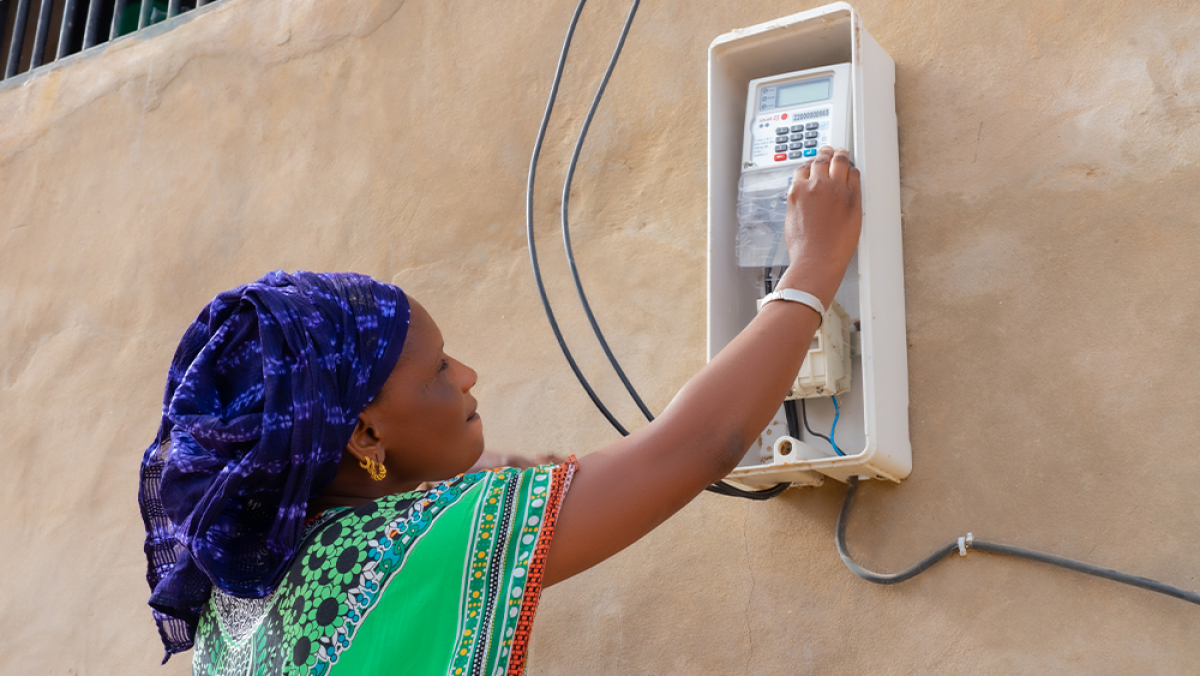EVER PROGRAMME
EVER: Énergie VErte pour le développement Rural (green energy for rural development)

The EVER programme (Énergie VErte pour le développement Rural) focuses on rural socio-economic development via mini solar power plants in Africa.
Development of any kind requires access to energy. According to the Energy Progress Report 2024, 680 million people still had no access to electricity in 2022, a large portion of whom were located in rural sub-Saharan Africa. In this region, there are significant and ever-growing disparities between urban and rural areas in terms of access to electricity. Lack of access to energy directly affects quality of life, health and education, especially for women and children. Moreover, socio-economic development is stifled, if not impossible, in off-grid areas.
In response, national policies encourage the installation of solar mini-grids to provide a renewable energy source, reduce dependence on fossil fuels and combat climate change. However, this solution comes with challenges: on the one hand, the price of electricity has to remain affordable so that households can connect to the grid, and on the other hand, the grid needs to be profitable so that the operator can continue to provide the service. Experience shows that domestic use of energy is not enough to ensure the profitability of a solar mini-grid and that a productive use of energy – i.e. for commercial purposes – also needs to be developed.
What role does ADA play?
To meet these challenges, ADA has concluded partnerships to:
- support solar mini grid operators to help them manage networks efficiently and develop innovative services
- assist households and entrepreneurs to use energy productively and access tailored financial services
- develop the skills of local actors (operators, entrepreneurs, micro and small enterprises and households) in the areas of energy expertise, business management and finance
- provide technical assistance to microfinance institutions to finance solar installations and business activities
- analyse lessons learnt and disseminate best practices.
For example, in Senegal, ADA is running a three-year project to facilitate access to renewable energy in rural areas with solar mini power plants from the operator COSEER. These plants will be used to supply energy to nearby households via individual household meters. The households will be able to activate their meters by making a payment via an SMS code sent by COSEER (pay-as-you-go system in which the user pays only for what they consume).
The project also targets companies – particularly very small companies – to encourage more productive and commercial uses of energy. To this end, advisors will be trained to sell the necessary equipment to the companies and inform them about the financial services available to finance access to the solar mini grids.
ADA helps COSEER by supporting entrepreneurship in electrified villages to encourage the productive use of energy. It also facilitates partnerships between all project stakeholders by fostering networking and innovation.
IN A NUTSHELL
ADA seeks to secure access to energy and to increase the impact thereof by supporting solar mini-grid operators. ADA also helps the operators’ customers use the energy productively by promoting entrepreneurship through energy-efficient equipment and financial services.
LATEST NEWS

11 July 2024
ADA and its partners at the ARE Investment Academy 2024
ADA contributed to the ARE Investment Academy, a program aimed at improving access to financing for renewable energy startups in Africa, organized by the Alliance for Rural Electrification (ARE) and Get.Invest.